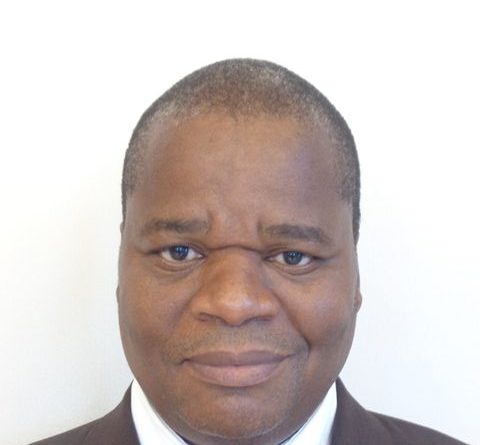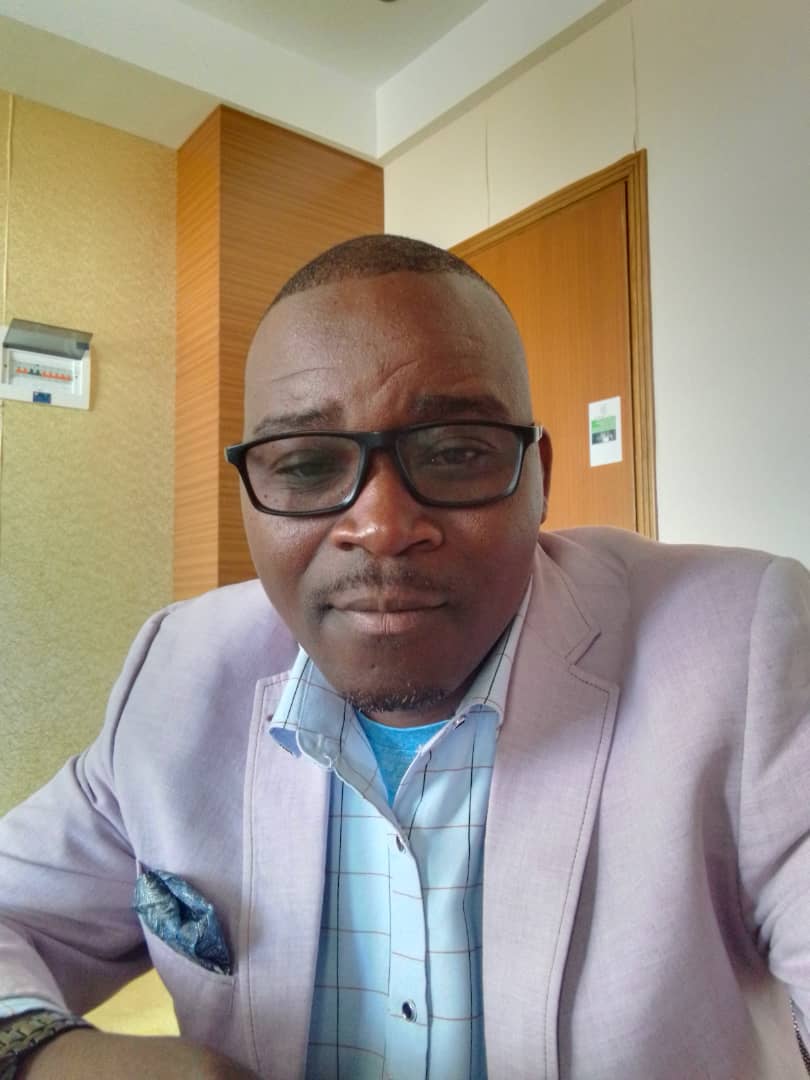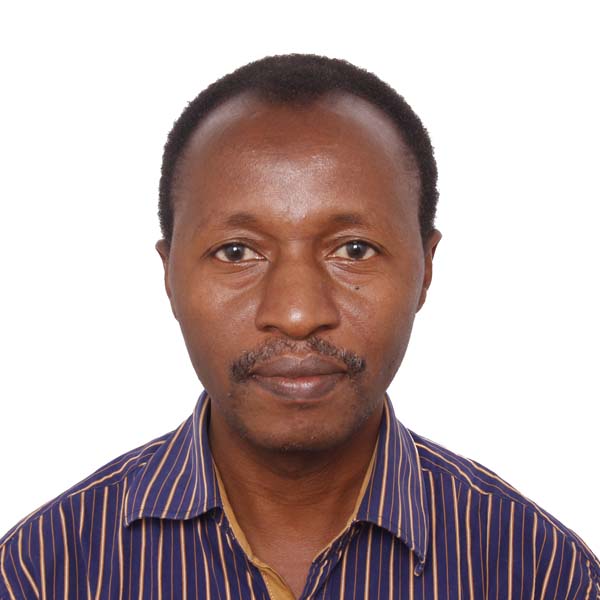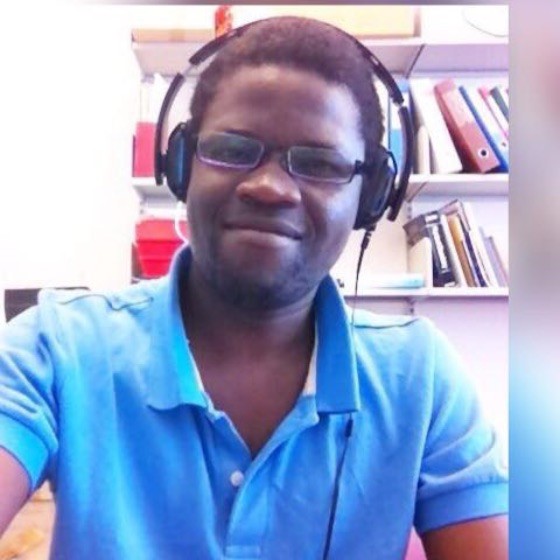Jonathan Makuwira
Chief EditorAlfred Maluwa , Prof.
Dr. Alfred Maluwa holds a PhD in Quantitative Genetics, which he graduated from the Norwegian University of Life Sciences, Norway in 2006. He is currently working as Director of Research, Postgraduate Studies and Outreach at the Malawi University of Science and Technology (MUST). Dr. Maluwa has 30 years of experience as a researcher of which 8 years have been on research management. He teaches Biostatistics to undergraduate and postgraduate students. He also teaches Research Methods and Technology Commercialization to Postgraduate students. He supervises M.Sc. students and co-supervises PhD students in partner universities nationally and regionally. He has implemented several research and development projects with a number of cooperating partners and has coordinated and managed regional and international research projects. He has established a research management system at MUST, developed the appropriate policies and agendas for research and development. He coordinates research and development programs for both students and faculty, leading in innovation development, patenting and commercialization programs and coordinating postgraduate studies and outreach programs for both faculty and students at MUST. He coordinates national and international cooperation programs between MUST and partners. He is a board member of the journal of Advances in Management Science and Information Systems and has over 50 publications in refereed journals and has contributed to eight book
Atikonda Mtenje-Mkochi , PhD
Dr. Atikonda Akuzike Mtenje-Mkochi is a Senior Lecturer in Linguistics and Communication and the Director of the Bingu School of Culture and Heritage (BISCH) at MUST. She is the first female to hold the position of Director at MUST. She holds a PhD in Linguistics from University of Cape Town. She also has an MA in Linguistics and BA Honours in Linguistics also from University of Cape Town and a BA (Humanities) degree from University of Malawi. She has published several journal articles and book chapters and has presented at various local and international fora in the areas of phonology, morpho-syntax and micro-variation of Bantu languages and sociolinguistic issues in Malawi. Her 2018 monograph A grammatical sketch of Cilambya explores the various linguistic aspects of the language. Atikonda’s research interests are particularly in the structure of languages with emphasis on phonology, morphosyntax and mico-variation of Bantu languages. She is also interested in how languages can be used for national, regional and global development in the sectors of health, education and environment. Before joining MUST, Atikonda worked with Mzuzu University as a linguistics lecturer and also served as acting deputy dean of the Faculty of Humanities and Social Sciences. In 2014, she was a visiting scholar at the School of Oriental and African Studies. She has won several awards and is currently Co-investigator of a Medical Humanities project funded by Wellcome Trust. She is also working on a project that is Reinventing Malawian folktales through animated stories of climate change and environment.
Chikondi Chisenga , PhD
Dr. Chikondi Chisenga is an Earth Scientist with specialization of Geology, Geophysics and Geo-informatics and a Senior Lecturer of Earth Sciences at the Malawi University of Science and Technology. He holds a Doctorate of Engineering Degree in Geodesy and Surveying Engineering from Wuhan University, a Master’s of Science Degree in Geo-Information Science and Earth Observation for Applied Earth Sciences from University of Twente and a Bachelor of Science Degree with double a major in Computer Sciences and Earth Sciences from University of Malawi. Most of the work that Dr. Chisenga does revolves around integration of geophysics, remote sensing and geological information in understanding the tectonic and geodynamic event at regional scale. Dr Chisenga also uses GIS and Remote Sensing technique to undertake different projects, including the Integrated Contextual Analysis sanctioned by WFP which entails the integration of different hazards, food security and social status within districts to categorize vulnerable districts in Malawi. He has published a number of papers in peer-reviewed international journals and presented a number of research papers at different international conferences. He is a reviewer for a number of journals, including those managed by Elsevier and Springer and has more than 10 years’ experience in research and teaching.
Willard Mbewe , PhD
Andrew Mtewa , PhD
Dr Andrew Mtewa is a Medicinal Chemist and Senior Lecturer at the Malawi University of Science and Technology. He is a fellow of the African Research and Impact Network and a member of the ACS, NOBCChE, RSC and the PSE. He got his PhD training in Medicinal Chemistry and Drug Discovery under the Wellcome Center for Anti-infectives Research at the Division of Biological Chemistry and Drug Discovery of the University of Dundee in Scotland as well as Mbarara University of Science and Technology in Uganda and attended a Phytochemistry PhD summer School at Kenya’s Egerton University. His main area of interest is drug design, synthesis, development and also metabolism and pharmacokinetics using medicinal chemistry aspects and various computational techniques to obtain logical ‘Hits to Leads’ for particular biological targets. Andrew has extensive industrial research from both management positions and the factory floor. He has over 60 journal articles and book chapters with various publishers such as Elsevier and reviews for Systematic Reviews, Tuberculosis, Molecular Biology Reports, All Life and the Scientific African among others. He has authored two books and is a lead editor for the book ‘Phytochemistry, the Military and Health’ published by Elsevier and also a lead editor of another book ‘Poisonous Plants and Phytochemicals in Drug Discovery’ by Wiley. Currently, Dr. Mtewa is lead editing their new book ‘Cannabis and Khat in Drug Discovery: The Discovery Pipeline and the Endocannabinoid System’ to be published by Elsevier. He runs a Science outreach project towards drug discovery for early learners.
Imani Sanga , PhD
Imani Sanga is a Professor of Music at the University of Dar es Salaam, Tanzania where he also directs the University choir. He Obtained his PhD in Music from the University KwaZuluu, South Africa. His research areas include popular music, aesthetics, postcolonial studies, the music of Tanzania and social identities. He is a recipient of the following research fellowships: African Scholars Program (2007), African Humanities Progran (2009) and National Humanities Center (2019-2020). Currently, he is finishing a monograph on the use of musical figures in Swahili literature.
Lee Bickmore , PhD
Dr. Lee Bickmore is a Professor of Anthropology and the Director of the Program in Linguistics & Cognitive Science at the University at Albany. He also has a faculty affiliation with the Department of Linguistics & Language Practice at the University of the Free State. A former Associate Dean and past President of the Association of Contemporary African Linguistics, his research focuses on prosody, especially tone, from both synchronic as well as diachronic and typological perspectives. His long-time areal focus has been the Bantu languages of Eastern and Southern Africa. His publications include numerous papers in both general and regional journals whose content provides both descriptive as well as analytic contributions. His 2007 monograph Cilungu Phonology explores the entirety of that languages phonology, and its interaction with the morphology and syntax. While perhaps best known for his work on Zambian languages, of late he has also published multiple papers on Rutooro, a Ugandan language, and done joint work on CiTonga, spoken in northern Malawi
Samuel Manda , PhD
Professor Samuel Manda is the Director of the Biostatistics Research Unit at the South African Medical Research Council. He holds a Ph.D. in Bayesian Statistics from the University of Waikato, and subsequently, he did postdoctoral studies in nonparametric Bayesian survival statistics at the University of Auckland, New Zealand. Previously, Prof. Manda was at the University of Leeds, United Kingdom. His original contribution to Bayesian methodology, modelling, and practical applications is widely acknowledged and valued by the national, regional, and international research science community. Over a long period, Prof Manda has demonstrated exceptional expertise and skills in Bayesian statistics and inference for spatial-temporal modelling and time-to-event and longitudinal data analyses,and he has innovatively adapted the methods to unique application problems and solutions in biomedical and public health studies. His main research interests include the development and application of biostatistical methods (mainly using Bayesian statistics) in spatial statistics and diseases mapping, time-to- event and longitudinal data analyses, sample survey data analysis, the statistical combination of studies, and causal inference from observational studies. He has over 125 publications and research items most of which are first-authored. In addition, he has done over 50 invited and plenary presentations at national and international conferences. Several of these papers are highly recognized in the field for making advances that are then used widely by others in applied problems. Recently, Prof. Manda has also become interested in Causal Inference, Small Area Estimation methods of health outcomes and coverage; and COVID 19 burden estimation, modelling, and prediction in sub-Saharan Africa. His position as a well- established statistician with a sustained research portfolio has been recognized by the National Research Foundation and several honorary positions at the universities such as Extraordinary Professorships (Pretoria, Stellenbosch, and North-West); Honorary Professor (KwaZulu-Natal and Adjunct Professor (Malawi). Prof. Manda’s science contributions also cover postgraduate supervision (with over 10 Ph.D. Biostatistics students in the last 5 years) and membership of national and international technical committees. Over the years, he has supported several national health projects including health surveys and clinical trials as a lead statistician. Prof. Manda is a member of the International Biometric Society South African Region and a Representative Council Member. In the past 10 years, he has supported (teaching, workshops, supervisions, mentorships, and invited presentations) several Biostatistics capacity development activities, mainly through the DELTAS Africa Sub-Saharan Africa Consortium for Advanced Biostatistics (SSACAB).
Gibson Ncube , PhD
Gibson Ncube holds a BA (Hons) and MPhil in French from the University of Zimbabwe as well as a PhD from Stellenbosch University.
He teaches French language and literature at the same university. His research interests are in comparative literature, gender and queer studies, cultural studies, onomastics and teaching foreign languages.
He has held several fellowships that include a Freestanding Postdoctoral Fellowship (funded by the National Research Foundation of South Africa), the African Humanities Fellowship (funded by the American Council for Learned Societies),
Iso Lomso Fellowship (funded by the Stellenbosch Institute for Advanced Studies) as well as a Virtual Visiting Fellowship (funded by
Leeds University Centre for African Studies/Leeds Arts and Humanities Research Institute).
He is the 2021 Mary Kingsley Zochonis Distinguished Lecturer (African Studies Association UK & Royal African Society). His publications have appeared in journals such as Social
Dynamics, Current Writing, Journal of Commonwealth Literatures, Journal Southern African Studies, Scrutiny 2, Agenda, Journal of African Studies as well as the Journal of Contemporary African Studies. He sits in the Editorial Boards of Nomina Africana,
the Journal of Literary Studies and the Governing Intimacies in the Global South Book Series at Manchester University Press. He is the current Assistant Editor of the South African Journal of African Languages.
Tiwonge Gawa , PhD
Tiwonge Mzumara-Gawa is an ornthologist,ecologist and conservation biogist by training; and an activist by passion. She is a lecturer in the Biomedical Sciences Department at the Malawi University of Science and Technology. She holds a PhD in Ecological Sciences from the University of Kwazulu Natal and an MSc in Conservation Biology from the University of Cape Town in South Africa. Her research interests are in species studies, particulary looking at how species study can hlep in ecostystem management and restoration. She is also interested in enganging policy makers to ensure that science better informs policy.This later interest introduced her to thr field of Biodiversity informatics and she has since been the chamion of the field in Malawi,leading a team from variety of institutions that have been the force leading the publications of the first datasets from Malawi by Malawian institutions on the GBIF website. Tiwonge is the current National Chairperson of the Wildlife and Enivironment Society of Malawi. She has over 10 years experience in ecology and coversation projects with specialized assignments conducting species and biodiversity assignents in Malawi.
Saizi Kimu ,
Saizi Kimu is a lecturer at Malawi University of Science and Technology’s department of Language and Communication Studies. Before joining MUST in 2016, he worked in Malawi’s civil service as a secondary school teacher for 3 years and The Catholic University of Malawi as an Assistant lecturer in the department of English and Communication Studies for 4 years. He holds a Master of Arts in Applied Linguistics and a Bachelor of Education majoring in Linguistics and Geography from the University of Malawi’s Chancellor College which he obtained in 2017 and 2009 respectively. His research interests are in Discourse Analysis as well as Environmental and Health Communication. He has published on Coverage of Climate Change in Malawian newspapers and Introducing experiences of pastoralist communities’ to cope with climate change risks, hazards and extremes.
Peter Jiyajiya ,
Peter Mayeso Jiyajiya is a lecturer in Language and Communication Studies at the Malawi University of Science and Technology (MUST). He holds the MA in Applied Linguistics and the Bachelor of Education, both from the University of Malawi. His research interests focuses on science communication, particularly climate change, disaster risk management, and their impact to livelihood of communities. He has been a Principal Investigator for the UNESCO project on Linguistic Diversity in Cyberspace which aims to create a multilingual cyber platform that will enable easy access to information using Malawian languages (August 2021-February 2022). Peter is a media training consultant for the Malawi-Liverpool Wellcome Trust, and has also been involved in the development of the Medical Dictionary for the Malawi-Liverpool Wellcome Trust. He has worked as a media training consultant for Malawi Lake Basin Programme and Association of Environmental Journalists, where he was training and mentoring journalists on how to investigate and report issues on climate change and water resource utilization. He has published in areas of language and climate change, and health communication.
Freeman Ntuli , PhD
Freeman Ntuli is a Professor and Head of Department of Chemical, Materials and Metallurgical Engineering at the Botswana International University of Science and Technology (BIUST) and Visiting Professor at the University of Johannesburg (UJ). He holds a PhD in Chemical Engineering from the University of Cape Town and he currently teaches courses in environmental engineering, separation processes, particulate processes and chemical reaction engineering. His main areas of research are in environmental process engineering, crystallization and hydrometallurgy. He has also been actively engaged in the supervision of postgraduate students and postdoctoral fellows and is engaged in a number of industry funded research projects. He is rated as an established researcher by South Africa’s National Research Foundation (NRF), a Chartered member of the Chartered Institution of Water and Environmental Management and Chartered Scientist (MCIWEM C.WEM CSci), a member of the Institution of Chemical Engineers (IChemE) and Registered Engineer with Botswana Engineering Registration Board (ERB).
Maurice Monjerezi , PhD
Maurice Monjerezi is an Associate Professor in the Department of Chemistry, University of Malawi. He holds a PhD in Chemistry from the University of Oslo, Norway and M. Eng in Chemical Engineering from the University Cambridge, England. His research interests are in (i) water and soil quality assessments to understand how changes in climate, hydro-biogeochemical and anthropogenic pressures influence the quality of ground- and surface water resources; (ii) water and wastewater treatment (iii) valorisation of indigenous resources, with a focus on industrial applications (iv) food safety and processing
Award: AU-TWAS National Young Scientist (2014)
Kondwani Magamba ,
Mr. Kondwani Magamba is a coding theorist, cryptologist and machine learning expert who is also a senior lecturer in mathematics at the Malawi University of Science and Technology (MUST). Mr. K. Magamba has over experience 18 years teaching experience at various universities in Malawi and has served as an executive committee member of the southern Africa mathematical sciences association for four years.
The research interests of Mr. K. Magamba include enumeration and applications of Goppa codes, factorization of polynomials, digital image processing, and applications of machine learning in agriculture.




